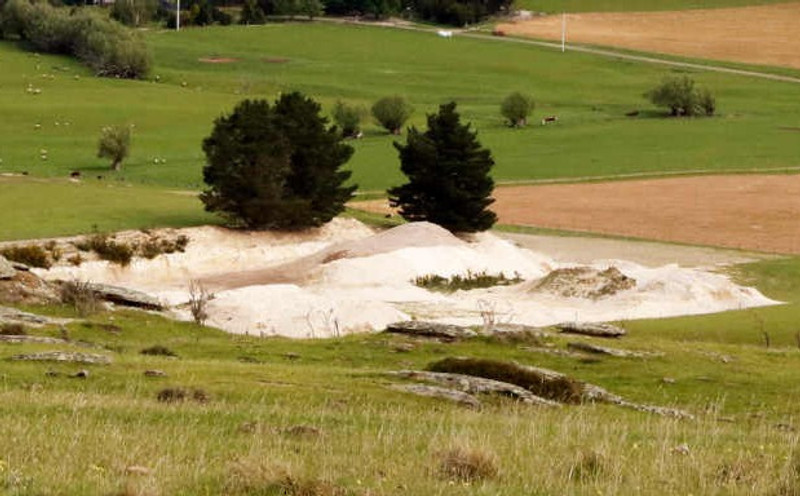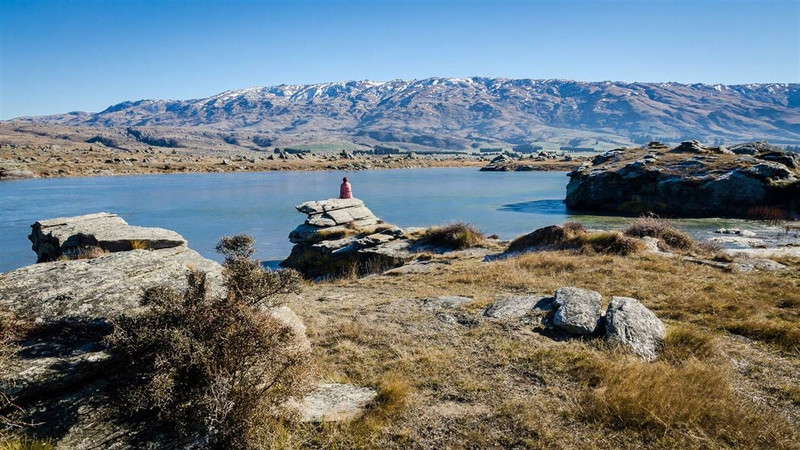Wildlife, fossils & geology
There are many displays and artefacts in the museum relating to the geology, past and present wildlife, and discovered fossils of the Strath Taieri district:
Foulden Maar Fossils
The Rock and Pillar Range & Taieri Ridge
Sutton Salt Lake (see video below)
Native skinks
Minerals extracted by Maori and Pakeha
Moa remains
Foulden Maar Fossils
Foulden Maar, located east of Middlemarch near Smooth Cone, contains fossils from up to 23 million years ago. The maar (lake) had no inflow or outflow, which led to remarkable preservation of fossils embedded in a chalky deposit. Variable bands, clearly visible in the laminated diatomite rock, indicate seasonal patterns of deposition.
In addition to billions of single cell organisms the maar deposits include fossilised flowers with pollen, fish, insects, sponges and leaves from subtropical forests of the past.
Over the years attempts have been made to mine the deposit for cosmetics, fertiliser and animal feed additives. After protests the Dunedin City Council stopped this activity and is allowing Otago University to resume very small scale extraction for research purposes.
The museum has several fossils of different types and detailed information about this significant geological feature.
Sutton Salt Lake
Sutton Salt Lake is New Zealand's only inland salt lake, with water about half as salty as seawater.
With no outlet, Sutton Salt Lake has concentrated salts from surrounding soils as it has repeatedly filled, evaporated and refilled.
Nestled amongst the spectacular parallel rock tor ridges of Sutton, with a backdrop of the Rock and Pillar Range, the lake (approximately 8 ha) occupies an enclosed shallow basin in the schist rock landscape.
Source: https://www.doc.govt.nz/
Video provided by courtesy of FYI Media


